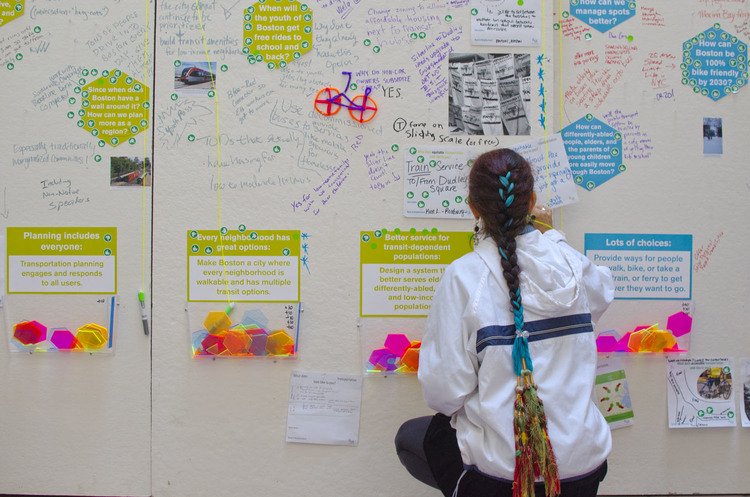
CIVIC ENGAGEMENT
People's Redevelopment Authority
The People’s Redevelopment Authority asks the question, “What if residents had the formal authority to engage in urban development?” What kinds of policies would they make and what kinds of spatial strategies would they choose to forward? How would they work with planners, architects and other spatial specialists to prototype and implement new ideas?
STREET LAB: UPHAM'S
STREET LAB: UPHAM'S was a season-long outdoor Creativity Lab where anybody could reimagine and prototype ways to liven up micro-public spaces. It took place in an alley in the Upham's Corner neighborhood in Dorchester, MA over the fall of 2013. We transformed an alley every Saturday, complete with activity stations and a small woodworking shop.
Go Boston 2030 Mobile Bike Lab: Ideas on the Street
How do you continue the conversation with the public about transportation in Boston? How might we gather as many project and policy ideas from people from all over the city? By bicycle!
Imaginary Tea Stop
The Imaginary 'Tea Stop' is a data collection tool that gathered tallies on what residents wanted to see near their train station.




